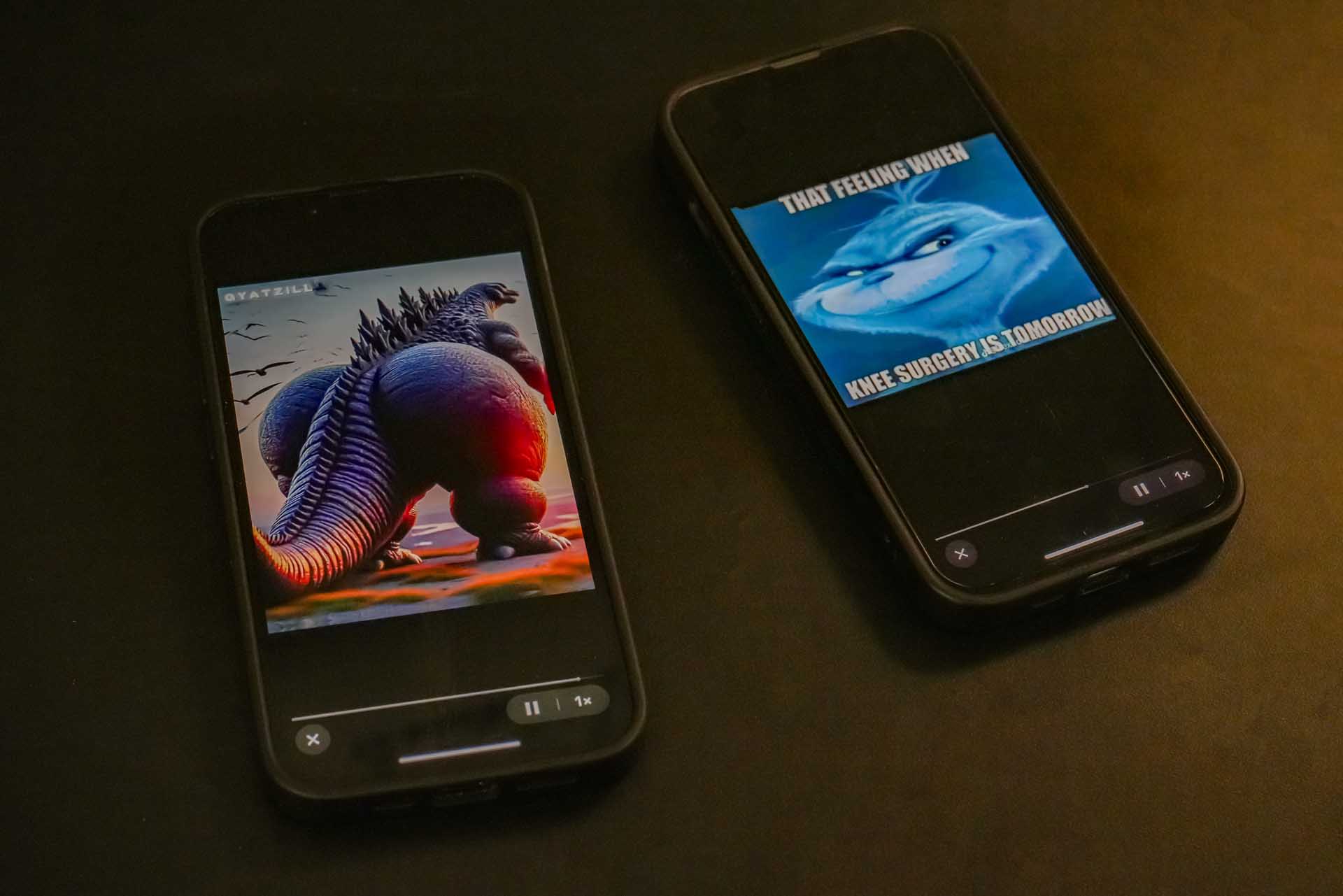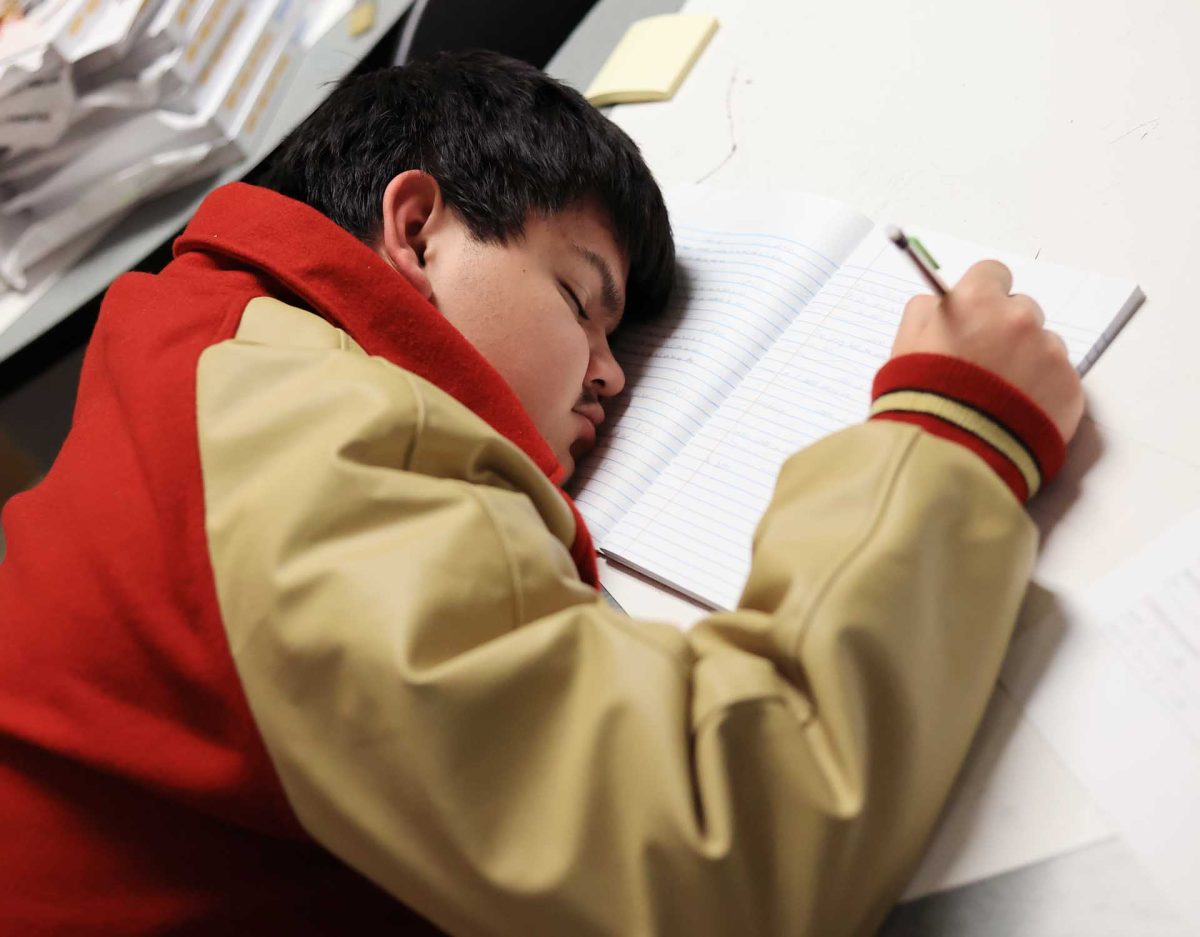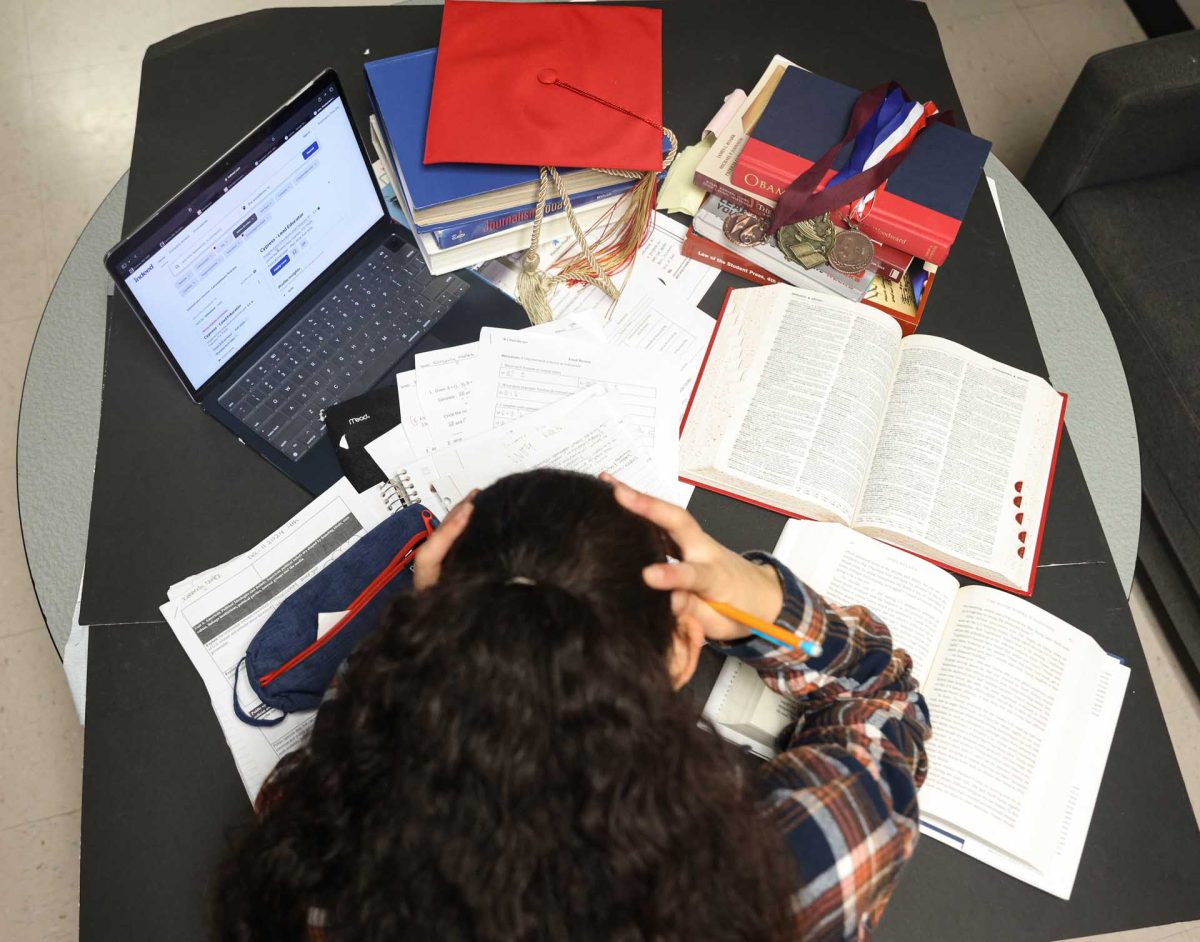Students have access to some sort of technology, whether that be at home or school. While this can lead to using technology to avoid tasks and negatively impacting their time management skills, the Student Media burnout survey revealed technology use is more nuanced than what it might seem.
TECHNOLOGY
Technology has become more frequent in classes — students report just below an average of three classes requiring technology — students find themselves on the web doing more assignments in and out of school. Sophomore Jacob Miller is one.
“I have three computer classes in school already, and then I do a lot of my work online outside of school, and I generally just find myself online most of the time,” Miller said. “I’d say maybe eight or 10 hours, which is ridiculous.”
Technology can serve as both a positive and negative tool. When used with the intent to reduce stress, technology had a positive effect. They could use technology to help with organizations, keeping alarms, to do work and communicate with others. Those who owned a cellphone associated a 487% improvement with time management.
“It’s how I communicate with my friends outside of school,” junior Riley Blanks said. “In school, when you’re trying to get your work done, you can’t have as much social interaction as you’d actually like to. So it’s important to have those social getaways outside of school and be able to talk to people whenever you can’t in school. It’s also any work you just can’t finish up in class, it’s important to get that done before the due date and something you have to take it home and work on it.”
Technology has also shown to help students with stress and burnout, as long as they self-moderate its usage. These moderated breaks showed no signs of affecting one’s time management skills. Students that felt as if they had good time management skills were 34% were less likely to use technology to avoid tasks.
Tech has also shown to affect students’ time management skills when not used properly or under self-moderation, such as task avoidance.
TASK AVOIDANCE
Task avoidance can build up when students start avoiding more tasks, letting them pile up. This has become a problem for some students, especially to those who have been burned out. Students who reported burnout were 87% less likely to think they good time management skills.
“I’m pretty good about it, but now and then, yeah, I’ll catch myself trying to put off tasks,” Blanks said. “I’ll be like, oh, one more episode, one more video, and then it kind of piles up, until fire more videos, and then 10, and then so on.”
Many students also said they would avoid work for school and around the house once they get home.
“The fact that, you know, sometimes I might need a break. Especially with work and school and then doing sports on the side, it gets exhausting,” junior Sky Robinson said. “That’s why some days it varies in school on how I perform in school. It depends on, you know how burnt out I feel or how tired I am.”
Less time management skills showed to affect students’ sleep schedule. Those who said they had good time management skills were 40.8% more likely to sleep longer then those had had less confidence.
WHEN THEY COMBINE
Students reporting using technology to avoid school and homework has 22% less confidence in their time management skills, and 27% more risk of feeling guilty and stressed from it.
“If you stop and actually sit down and think for a couple of minutes, and then you will actually come to realize that there are more important things than just technology,” freshman Patricio Garcia. “In a sense, it kind of ruins you, your priority, your values tend to not line up on what your actions are “It could change you, like it did to me. I had to talk to myself, if you don’t talk to yourself about these kinds of things, you’re not going to figure it out.”
The report noted that students who felt they have good time management skills are 34% less likely to use technology to avoid tasks and spend 26% less time on technology when they do.
“Interestingly, time management skills and being explicitly taught time management decrease the likelihood a student chooses to avoid tasks with technology. However, neither significantly affected the amount of time spent when you factor time management skills and training together.
This suggests that while the skills and teaching is important to spending less time avoiding tasks with technology, they are bigger factors in preventing them from avoiding tasks in the first place.”
This all changes when students use tech more moderately. When used as a way to relieve stress and burn out, it showed no effect on time management.
“The fact that, you know, sometimes I might need a break. Especially with work and school and then doing sports on the side, it gets exhausting,” Robinson said. “That’s why some days it varies in school on how I perform in school. It depends on, you know how burnt out I feel or how tired I am.”
This shows that technology has both a negative and positive effect on time management and task avoidance. As long as students use it with self-moderation and as a way to relieve stress wouldn’t have negative effects.









